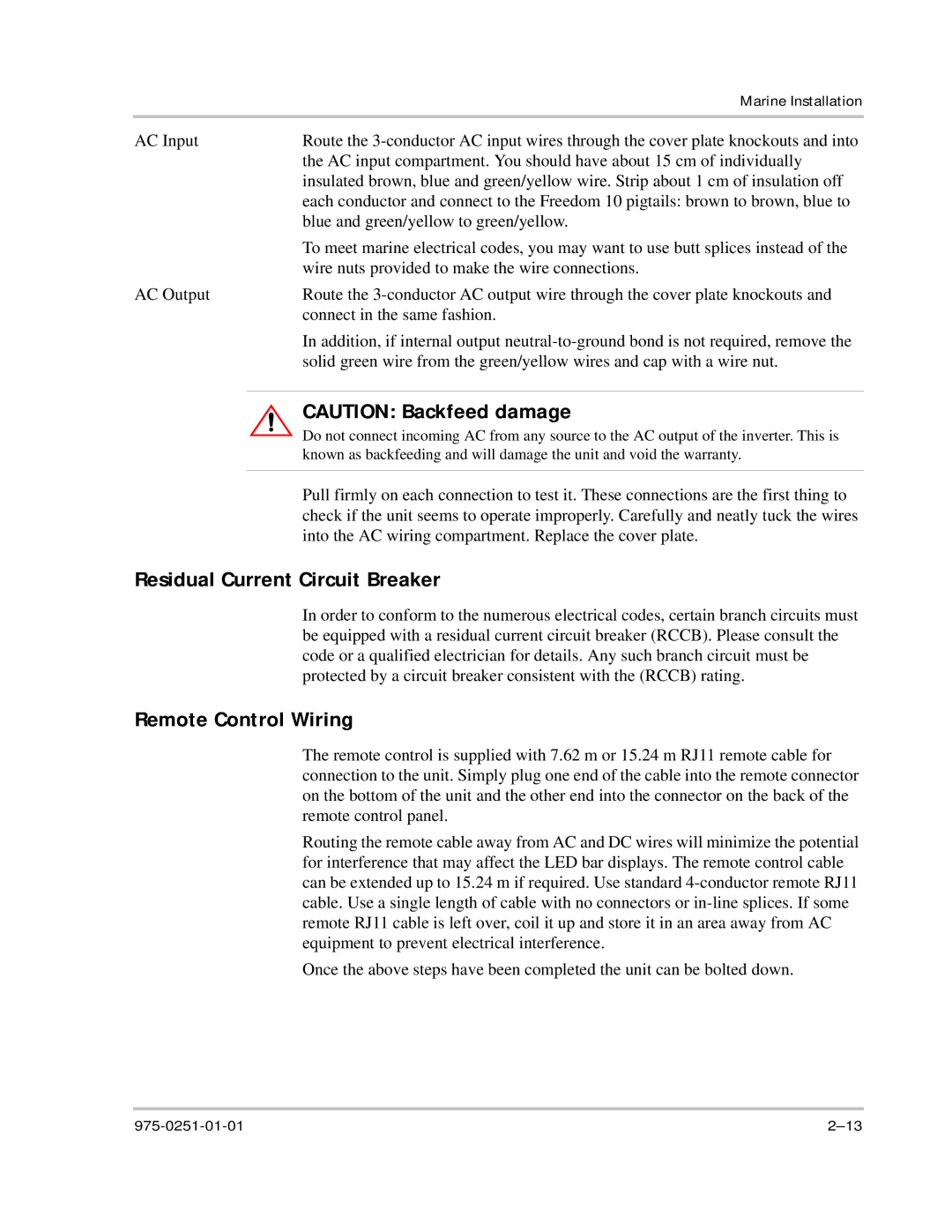
| Marine Installation |
|
|
AC Input | Route the |
| the AC input compartment. You should have about 15 cm of individually |
| insulated brown, blue and green/yellow wire. Strip about 1 cm of insulation off |
| each conductor and connect to the Freedom 10 pigtails: brown to brown, blue to |
| blue and green/yellow to green/yellow. |
| To meet marine electrical codes, you may want to use butt splices instead of the |
| wire nuts provided to make the wire connections. |
AC Output | Route the |
| connect in the same fashion. |
| In addition, if internal output |
| solid green wire from the green/yellow wires and cap with a wire nut. |
CAUTION: Backfeed damage
Do not connect incoming AC from any source to the AC output of the inverter. This is known as backfeeding and will damage the unit and void the warranty.
Pull firmly on each connection to test it. These connections are the first thing to check if the unit seems to operate improperly. Carefully and neatly tuck the wires into the AC wiring compartment. Replace the cover plate.
Residual Current Circuit Breaker
In order to conform to the numerous electrical codes, certain branch circuits must be equipped with a residual current circuit breaker (RCCB). Please consult the code or a qualified electrician for details. Any such branch circuit must be protected by a circuit breaker consistent with the (RCCB) rating.
Remote Control Wiring
The remote control is supplied with 7.62 m or 15.24 m RJ11 remote cable for connection to the unit. Simply plug one end of the cable into the remote connector on the bottom of the unit and the other end into the connector on the back of the remote control panel.
Routing the remote cable away from AC and DC wires will minimize the potential for interference that may affect the LED bar displays. The remote control cable can be extended up to 15.24 m if required. Use standard
Once the above steps have been completed the unit can be bolted down.
